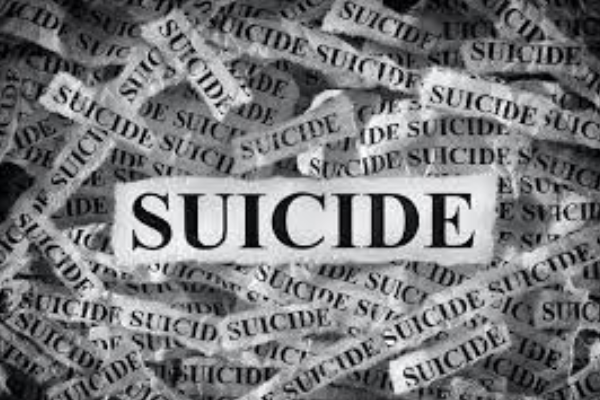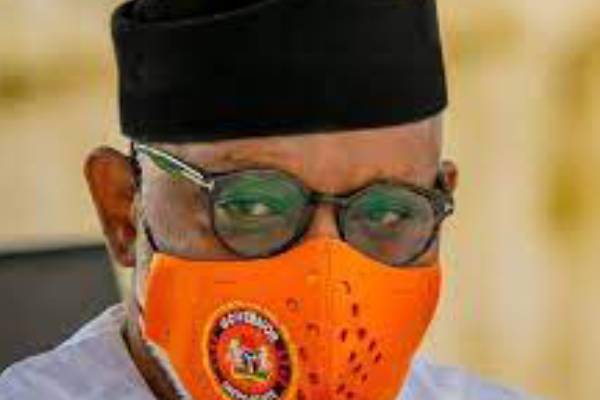Nigerians have urged the Federal Government to take more seriously, the growing rate of suicide among young persons, especially males, across the country .
They urge Federal Government to provide measures to curb the problem which is getting out of hand .
Nigeria has one of the highest suicide rates in Africa.
It is considered a taboo in Nigeria, and it is also a crime according to Section 327 of the Criminal code.


But this has not stopped the alarming rise in numbers of those attempting to kill themselves.
Depression and the harsh economic realities in the country have only helped in pushing many beyond the limits of endurance
Societal pressure, poverty and marital conflicts are more prevalent in society nowadays due to financial constraints, which more or less answers questions raised about why is suicide is more common among men
Ingesting the liquid insecticide “Sniper” is the most common method young men and women adopt in taking their lives.
Another method, is jumping off bridges .
A chat with experts from various sectors, gives us more insight into the causes of the rise in suicide cases among men in Nigeria.
Having none to share problems and receive encouragement, is a problem.


They encourage men to embrace psychotherapy or find someone to speak to, as a problem shared is often a problem solved .
Others calls for awareness and the need to do things differently, in order to prevent running into financial constraints.
They also urge Nigerians with suicidal thoughts to talk to people and seek help .
Government at all levels should also show more concern for its citizens by providing affordable and accessible psychotherapy.
Unemployment and the hopelessness of not knowing how to achieve their dreams is a grim reality that faces youths in the present economic circumstances and a major factor that drives suicide.
The Federal Government must step up to its responsibilities of creating more avenues of employment, creating an enabling environment for youths to become self sustaining and empowering youths.
In order to avoid suicidal thoughts, Nigerians are encouraged to keep themselves busy by acquiring skills, seeking help and going for therapy.
Suicide accounts for over one million fatalities each year -WHO
While the link between suicide and mental disorders (particularly depression and alcohol use disorders) is well established in high-income countries, many suicides occur impulsively in moments of crisis with a breakdown in the ability to deal with life stresses such as financial problems, relationship break-ups, or chronic pain and illness, according to the World Health Organization (WHO).
Suicidal behavior is also highly related with conflict, tragedy, violence, abuse, or loss, as well as a sense of solitude. Suicide rates are also high among vulnerable groups that face prejudice, including refugees and migrants, indigenous peoples, lesbian, homosexual, bisexual, transgender, intersex (LGBTI) people, and prisoners. A previous suicide attempt is by far the most significant risk factor for suicide.
Pesticide self-poisoning is thought to account for approximately 20% of global suicides, the most of which occur in rural agricultural areas of low- and middle-income countries. Other prevalent suicide techniques include hanging and weapons.
According to the WHO, suicide accounts for around one million fatalities worldwide each year, with 20-25 attempts for every suicide fatality. According to the Global Health Observatory, the global age-standardised suicide rate is 11.4 per 100,000 persons, with suicide being the second greatest cause of death among people aged 15 to 29.
In Nigeria, the rate is set as 9.5/100,000. It has been significantly connected to depression, as well as drug abuse, either directly or indirectly.
While suicide is not a new phenomenon on a global or local scale, there is growing concern that teenage suicide is on the rise. This is especially concerning for countries with a young population, such as Nigeria, where they account for a sizable proportion of the population and are the most productive age group. Suicide has serious ramifications for economic progress.
According to studies, the rate climbs from 0.6/100,000 among those 14 and under to 6.9/100,000 among those 15 to 19. Suicide attempts among adolescents have been estimated to be 12%.
Nigeria is not the only nation where suicide rates are rising. According to the National Crime Record Bureau, thousands of young people commit suicide in India each year. They accounted for 6.7% of all suicides in 2015, resulting in a death toll of about 9,000. The pressure to perform well in school is to some professionals, parents, and government to blame.
According to a study, more young individuals in the United States (U.S.), particularly girls, are trying suicide by poisoning.





